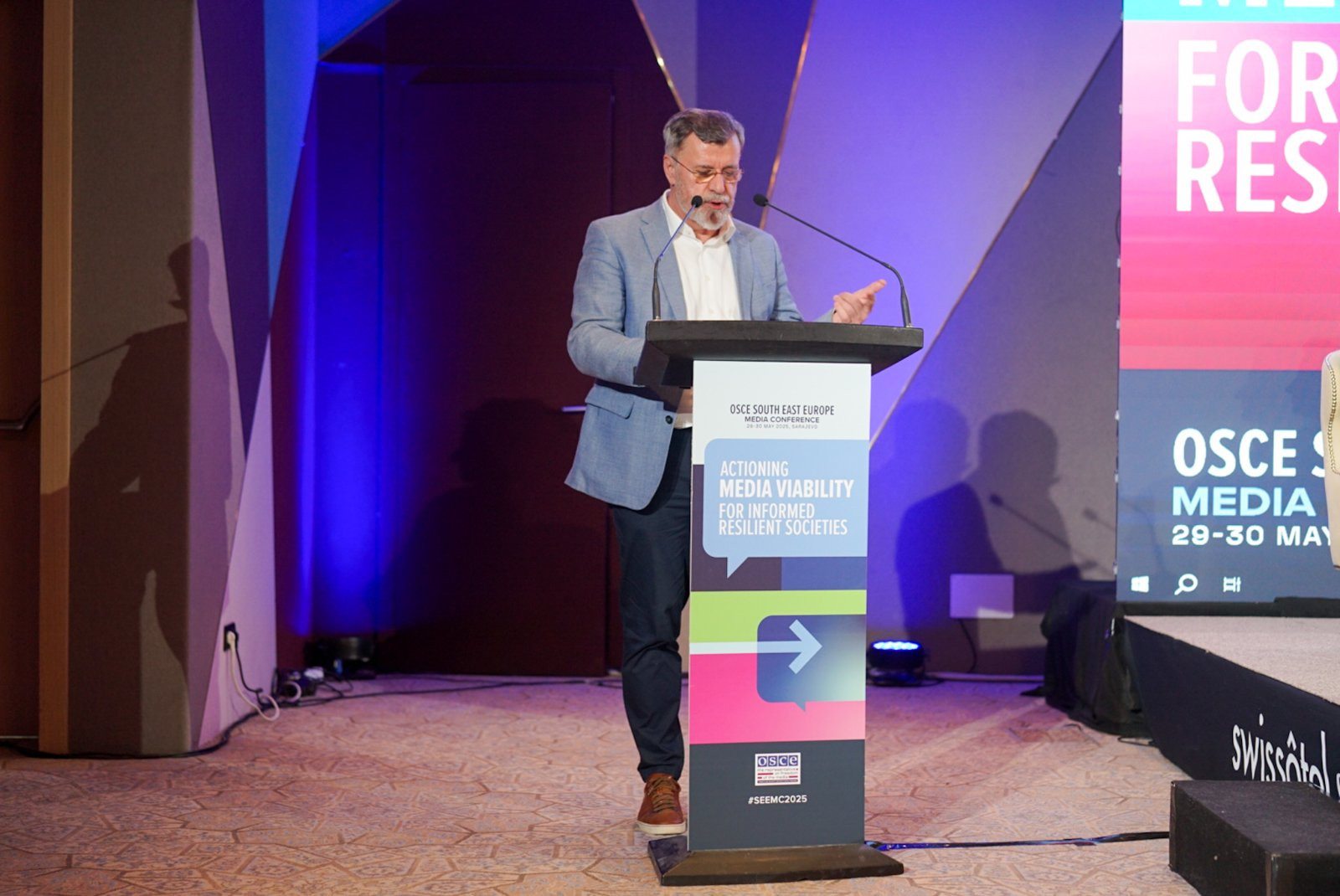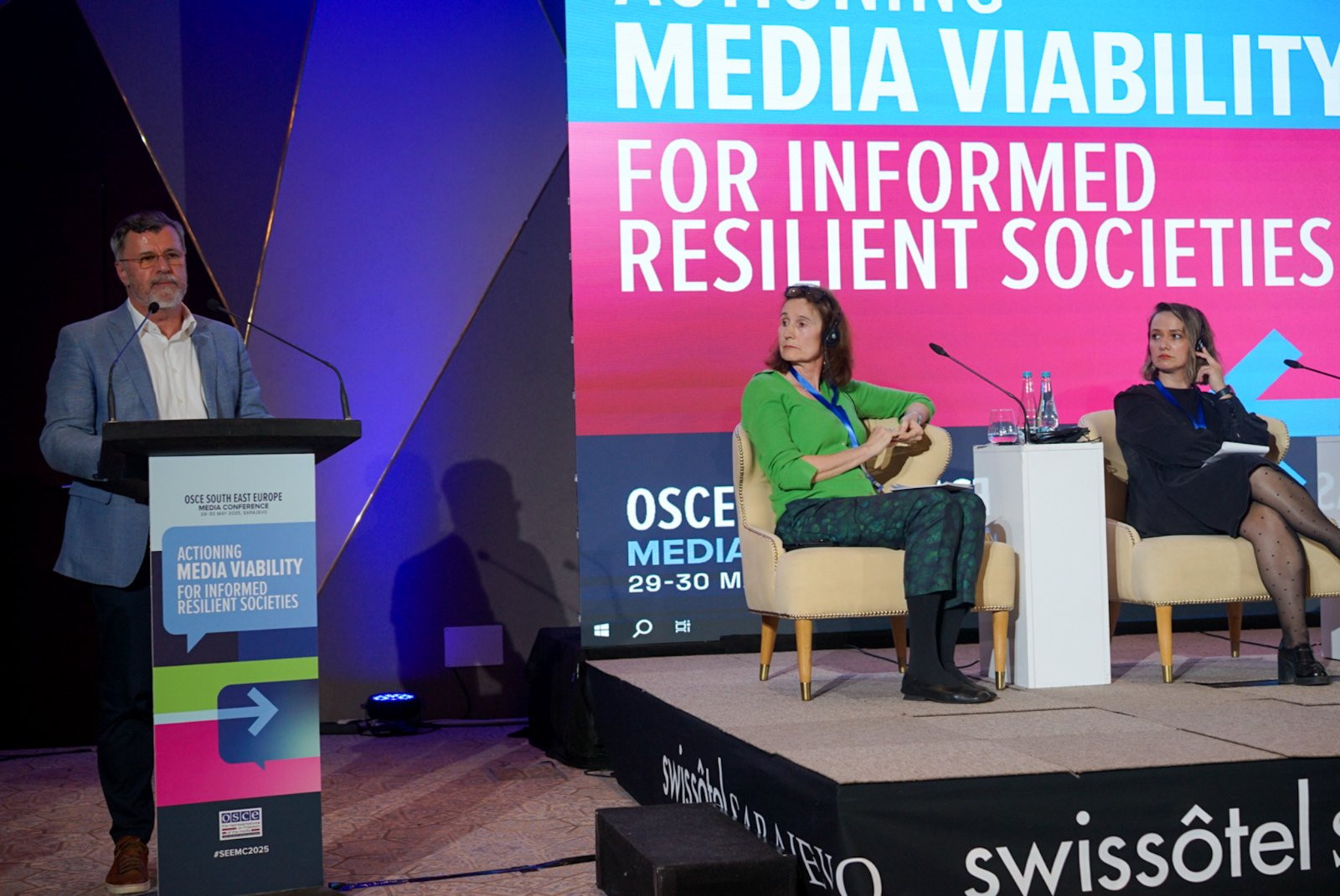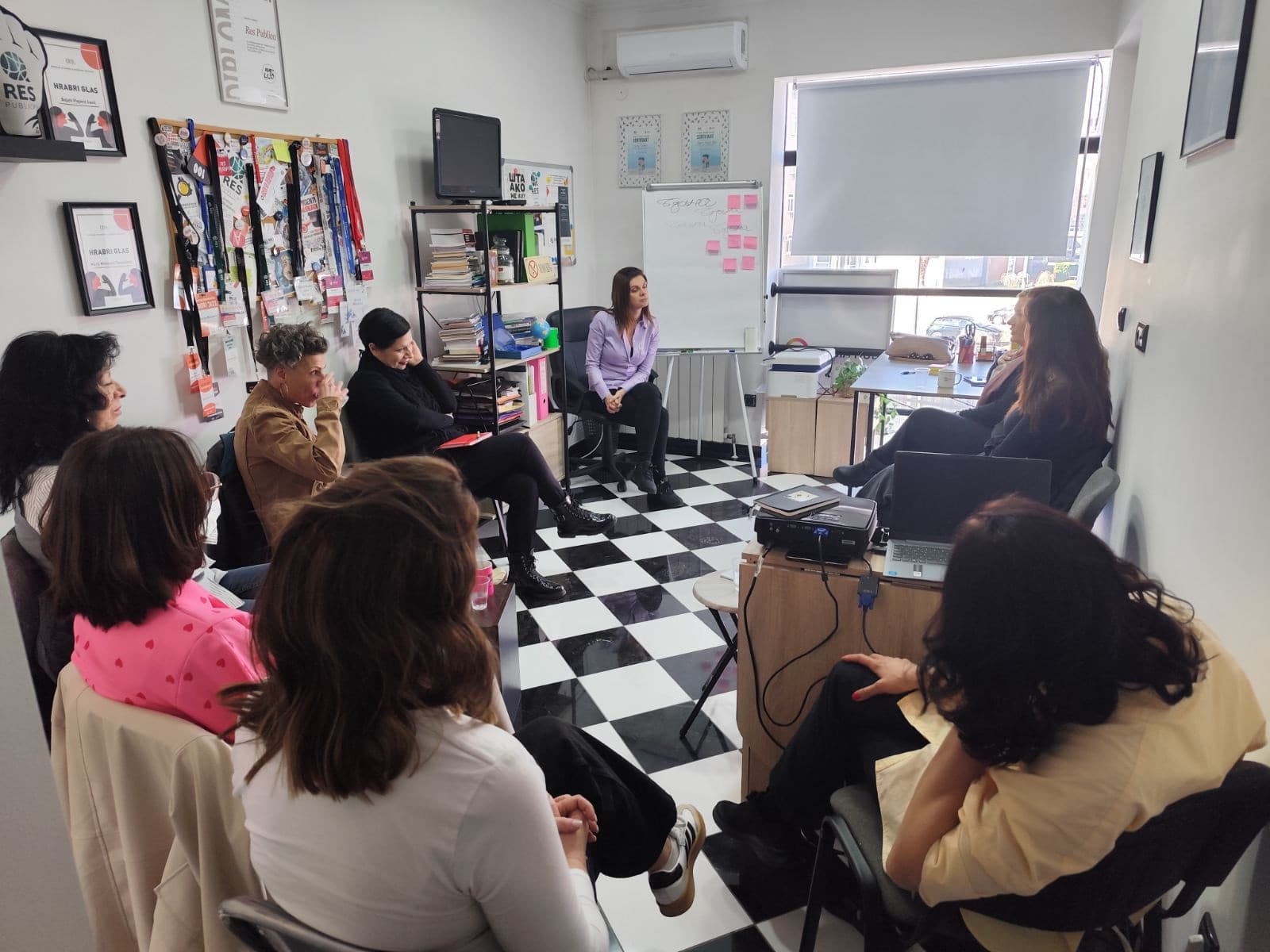Veran Matić: Journalists in Serbia are being beaten, arrested, intimidated, and wiretapped, while the EU remains silent.
In Serbia, journalism is under intense, constant pressure coming from all sides. At the same time, laws are being adjusted that are intended to legalize government control over the media, and there is manipulation in the selection of members of the REM Council, which is supposed to oversee these media, stated Veran Matić, Chairman of the Board of the Association of Independent Electronic Media (ANEM), at the tenth "South East Europe Media Conference" held in Sarajevo organized by the OSCE Mission.

He added that the entire police-judicial system is mobilized against journalists. Journalists, he said, are beaten, arrested, intimidated, and surveilled.
“They are hunted down and called traitors by the highest officials, while numerous pro-government media create daily programs labeling them as centers of evil, as some editorial offices are referred to. Meanwhile, the EU remains silent, while others in the region watch how far the authorities in Belgrade can go. Everything that ‘passes’ for them, and everything is ‘passing’ with the only remaining control in the accession process (which is Brussels), immediately reflects throughout the entire environment,” Matić assessed in Sarajevo.
According to him, the entire region is actually in the grip of a few powerful individuals, who, through the impunity of crimes and violence against journalists, control the narrative of media freedom across the region.
“The fear and sense of helplessness among journalists who find themselves under this hammer is further intensified by the lack of or the presence of mere apparent solidarity. There are no systemic solutions for them; it all comes down to a few individuals and enthusiasts,” emphasized the president of the ANEM Board of Directors.

He reminded that since the beginning of the student protests, more than 20 physical attacks on female and male journalists have been recorded, none of which have been prosecuted.
Attacks, he highlighted, mostly come from members of the paramilitary police of the ruling party, composed of individuals with criminal pasts and likely present. They often order the police present, who do not intervene in these attacks, but frequently remove journalists from their workplaces, while failing to identify or detain the attackers, Matić stated.
“One journalist recently boasted about how he avoids attacks by disguising himself as a thug, mingling among them. At the same time, we had reports of police wearing press vests at a violent gathering. Tabloids daily target female and male journalists with horrific accusations, but that is not enough; the director of one media outlet goes out onto the street to beat a leading investigative journalist. The prosecution claims there is no grounds for official action,” Matić noted.
Pointing out specific examples of attacks, pressures, and lawsuits, he assessed that the number of professional media outlets decreases each year and that journalists most often transition to other professions.
“The authorities are doing everything to undermine financial stability where it exists. In the competitions for project co-financing, large-scale plundering takes place. About 15 million euros are mainly allocated to pro-government media, tabloid media, and those established solely to siphon off that money. The withdrawal of donors last year was an additional blow,” Matić said.

Nevertheless, he concluded that Serbia has great hope in the student movement, with students blocking all universities, demanding respect for the rule of law and that institutions function properly.
“This movement has brought new paradigms and values, establishing generational unity regardless of nationality or region. Differences are set aside, and intelligence and creativity are brought to the forefront. The way they organize, make decisions, and manage blockades and protests speaks to a new democratic Serbia, a Serbia of justice and fairness, where institutions operate to uphold the constitutional order and laws, a Serbia with media that inform and educate, a Serbia where they want to stay,” Matić stated in his speech.
At the very end of his address, he expressed his pleasure that today at the conference were also “representatives of the democratic future of Serbia,” students from the Faculty of Philosophy in Niš, from the Department of Communication and Journalism.
“These are Anđela, Emilija, Žarko, and Nikola. I invite you to welcome this new Serbia,” Matić urged.
Related Articles

"Protecting Local Media": SRG Meeting Held with Journalists Ahead of Local Elections in Bor on March 29

The fourth training for the safety of female journalists and media workers was held in Kragujevac.



%20%C4%86ao%20Nevena%20VERAN%20MATI%C4%86%20Vlast%20%C5%BEeli%20da%20istrebi%20novinare%20-%20YouTube.png&w=3840&q=75)








